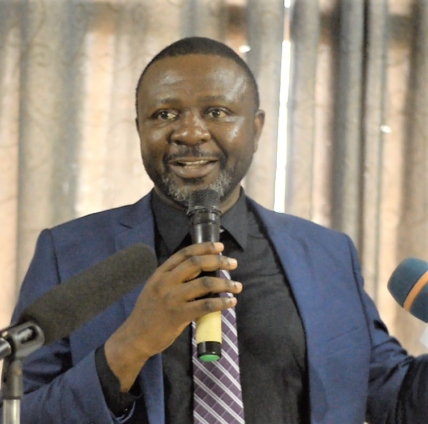
Audio By Carbonatix
Ghana’s inflation will get worse before getting better, finance lecturer at Andrews University in Michigan, USA, Professor Williams Peprah, has stated.
However, he believes the rate of increase in inflation will not be the same like in 2022.
Inflation shot up marginally to 43.1% in July 2023, driven by food inflation (55.0%).
Speaking to Joy Business, Professor Peprah said commodity prices have been rising on the world market, whilst the cedi’s performance, which impacts on import inflation, has not witnessed a good one despite recording some stability in recent weeks.
According to him, food inflation in the country has been so high, questioning government agriculture policies such as Planting for Food and Jobs.
10 food items recorded inflation higher than the overall food inflation. They included Tea and Related Products (150.0%); Cocoa Drinks (86.5%); Fruits and Vegetables Juices (66.7%); Cereals and Cereal Products (64.2%); Sugar, Confectionary and Desserts (62.7%); Oil and Fats (59.5%); Milk and Other Diary Products and Eggs (58.3%); Coffee and Coffee Substitutes (58.2%); Fish and Other Sea Foods (57.7%) and Live Animals, Meat and Other Parts of Slaughtered Land Animals (55.2%).
Professor Peprah said the recent World Bank Food Security Report and the International Monetary Fund Country Report on Ghana point to the fact that food inflation will get worse before getting better.
The World Bank issued a report [Food Security Index] that we should have anticipated and also in our IMF Ghana document had already mentioned that the situation will get worse before getting better. So, all these issues indicate that food inflation will be high. There has been shortage of rice globally in recent time due to the India policy. The Indians controls about 40% of the rice production and has sent some to part of Europe and Africa, so food prices is going to go up because of shortages”.
“So like I earlier said, it going to get worse before getting better. What I see is that maybe the rate of increase will not be as it happened in November and December last year. The rate of increase may be marginal as we noticed between the previous month June [2023] and July [2023].
He advised the government to address some policies within the agriculture sector.
“The government should be able to address some policies and strategies in the agriculture sector to address the farmgate versus the urban market. That kind of issue can be addressed. We should anticipate that inflation will get worse before it starts to come down”.
Analysts anticipate that inflation would go down when the harvest season starts in September 2023 and October 2023, but could go up again in November 2023 and December 2023 because of the festive season.
Latest Stories
-
Trump ‘does not care’ if Iran play at World Cup
1 hour -
Burna Boy’s associate, Rahman Jago confirms singer converted to Islam
1 hour -
Amazon says drones damaged three facilities in UAE and Bahrain
2 hours -
NDC’s Baba Jamal wins Ayawaso East by-election
2 hours -
Integrity over individuals: Economic Fighters League maintains vote-buying stance in Ayawaso East
2 hours -
How to follow European football
2 hours -
A new dawn: Formula One charges into an unpredictable 2026
2 hours -
Trump threatens to halt trade with Spain over military base access
3 hours -
Trump says US Navy will protect ships in Middle East ‘if necessary’
3 hours -
Ghana shines in GSMA DNSI and DPRI 2025 report due to E-Levy repeal and tech neutrality
4 hours -
NJA College of Education inducts 379 students amidst infrastructure gains and calls for professional discipline
4 hours -
GJA President, executives join Sammy Gyamfi to observe One-Week memorial of father-in-law
4 hours -
FDA bans mixed alcoholic energy drinks: VAST-Ghana demands ‘Name and Shame’ list for public safety
4 hours -
Police probe deaths of teacher and farmer in Assin Fosu
4 hours -
Gov’t reaffirms commitment to safeguard Ghana’s energy supply amid Middle East crisis
4 hours

